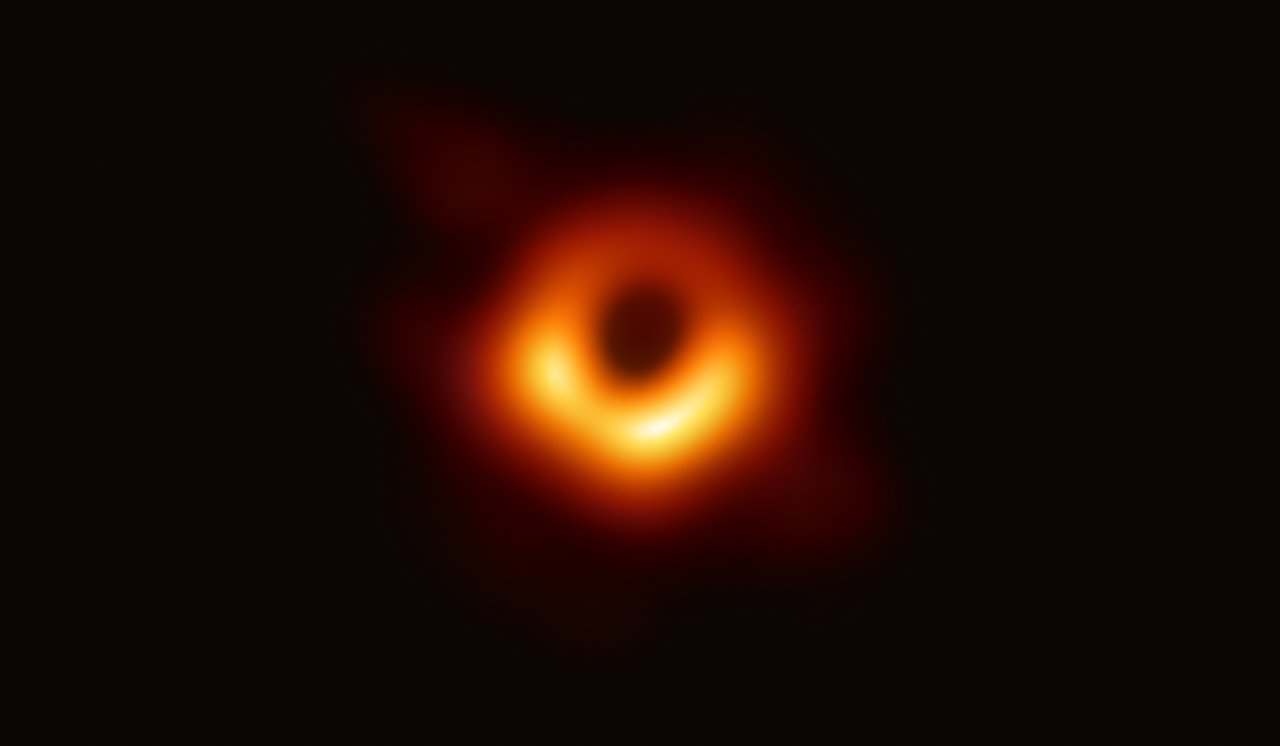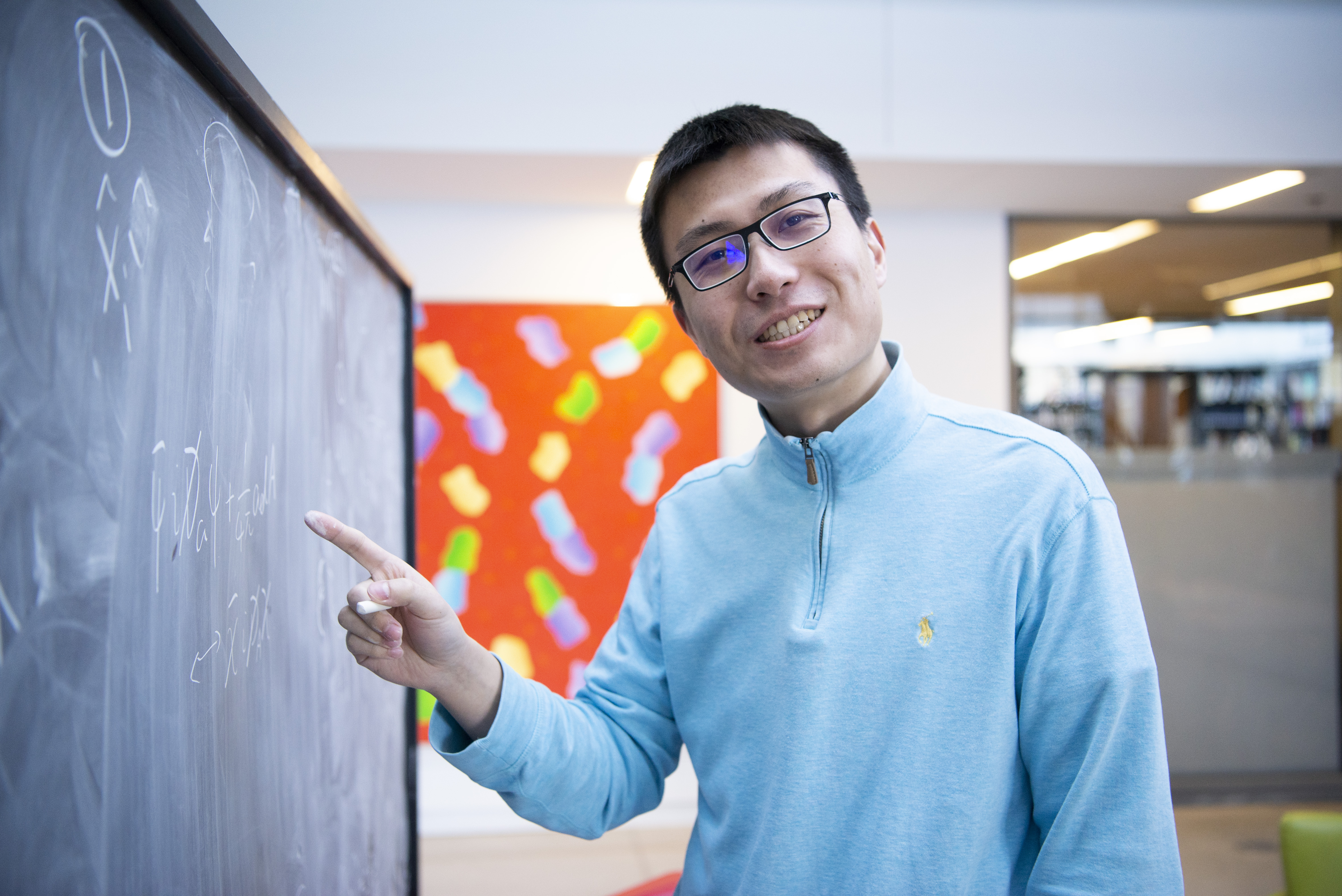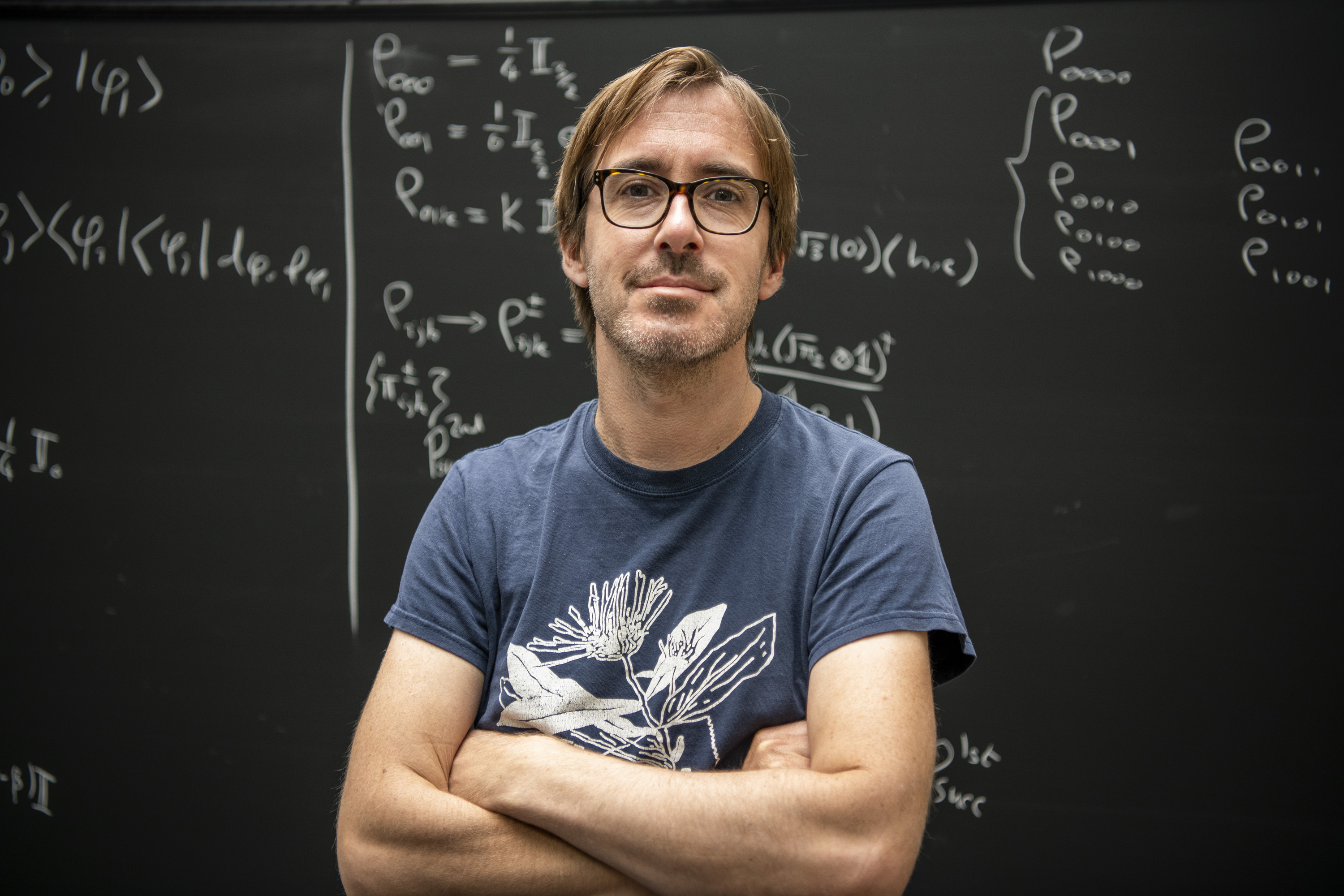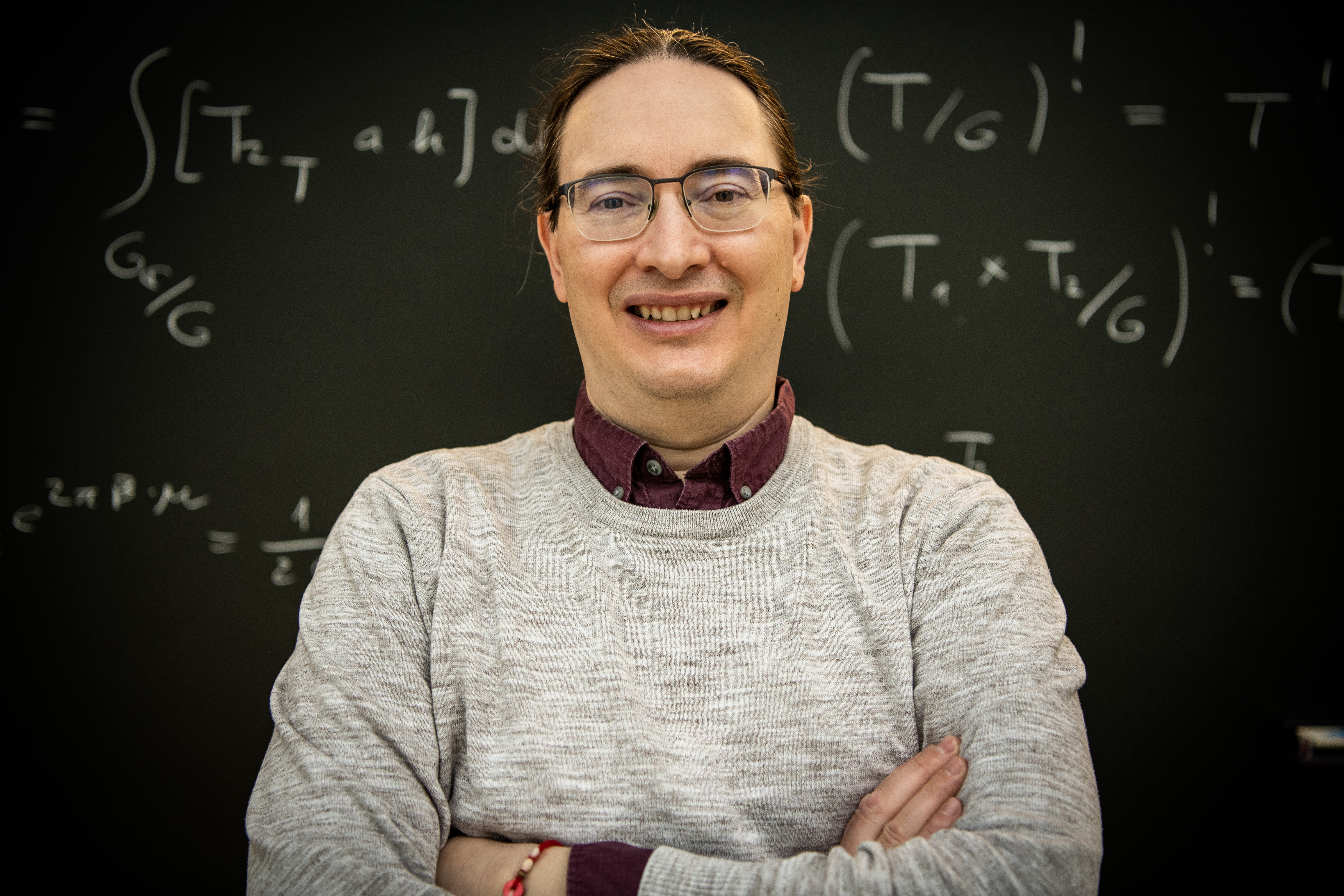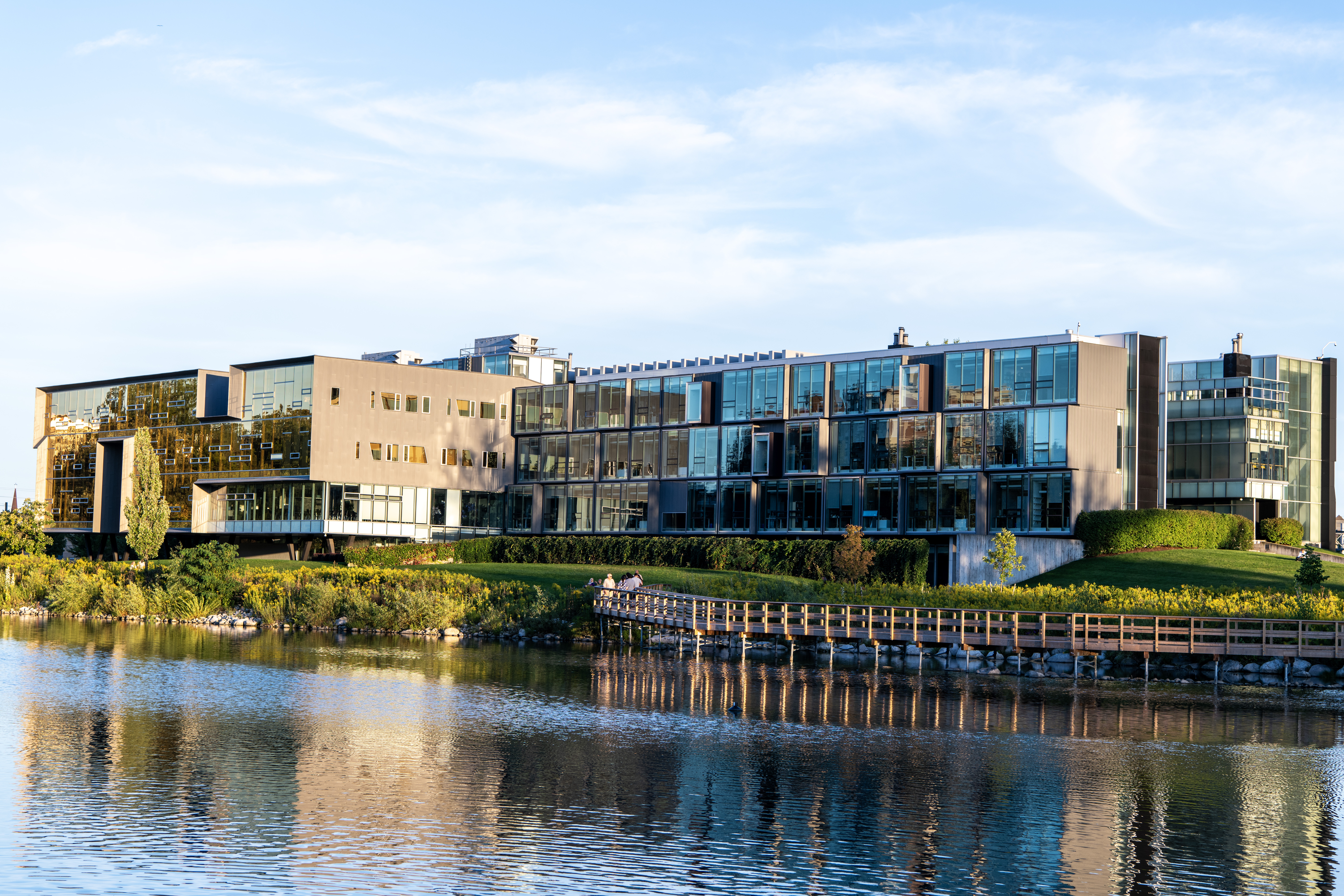The awards – announced in March 2025 – honour top research, with an emphasis on achievements that are both excellent and of outstanding scholarly value. The 2025 awards highlighted papers from more than 20 countries and regions, spanning physics, mathematics, and theoretical computing and information sciences.
“Perimeter’s researchers are truly at the forefront of some of the most exciting developments in theoretical physics, mathematical physics, and astrophysics,” says Marcela Carena, Executive Director of Perimeter Institute. “I’m proud of my colleagues’ achievements, and of the environment we’ve built at this Institute to enable research excellence across a variety of fields. Perimeter is a world-class destination for theoretical physics research, and a hub for productive collaboration.”
Four award-winning papers that push boundaries
From a now-famous image of supermassive black hole M87*, to new understandings of quantum field theory, each of the four winning papers underscore Perimeter Institute’s pivotal role in advancing scientific innovation that will inspire new generations of scientists worldwide.
The Event Horizon Telescope team, including six Perimeter Institute scientists, won for "First M87 Event Horizon Telescope Results IV. Imaging the Central Supermassive Black Hole," published in The Astrophysical Journal Letters. The paper made international headlines with the first-ever image of a black hole.
Perimeter faculty member Chong Wang and co-authors won for their paper, "A Duality Web in 2+1 Dimensions and Condensed Matter Physics" published in the Annals of Physics in 2016. The paper has many potential applications, including in condensed matter physics like the theory of topological insulators.
Kevin Costello, Krembil William Rowan Hamilton Chair in Theoretical Physics at Perimeter, won in the Mathematics category alongside his co-authors for their influential 2018 paper, "Gauge Theory and Integrability, I," published in ICCM Notices. The paper was the first in a series that develops a new and unifying perspective on two-dimensional integrable models, both discrete and continuous, which ‘explains’ where they come from, and gives many new examples.
Finally, Perimeter’s Davide Gaiotto, who holds the Krembil Galileo Galilei Chair in Theoretical Physics, won alongside three co-authors for their paper, "Theta, Time Reversal, and Temperature" published in the Journal of High Energy Physics in 2017. Along with a companion paper published the following year, the team demonstrates some novel applications of higher form symmetries to theories such as quantum chromodynamics. Higher form symmetries are now used to study some problems in condensed matter physics and topological field theory.
About Perimeter Institute
Perimeter Institute is a leading centre for research, training, and outreach in theoretical physics. Based in Waterloo, Ontario, Canada, it aims to deepen our understanding of the universe at its most fundamental level.
Bringing together a diverse community of scientists, Perimeter fosters new ideas about space, time, and matter – advancing discoveries that could shape our future.
About PI
Perimeter Institute is the world’s largest research hub devoted to theoretical physics. The independent Institute was founded in 1999 to foster breakthroughs in the fundamental understanding of our universe, from the smallest particles to the entire cosmos. Research at Perimeter is motivated by the understanding that fundamental science advances human knowledge and catalyzes innovation, and that today’s theoretical physics is tomorrow’s technology. Located in the Region of Waterloo, the not-for-profit Institute is a unique public-private endeavour, including the Governments of Ontario and Canada, that enables cutting-edge research, trains the next generation of scientific pioneers, and shares the power of physics through award-winning educational outreach and public engagement.

